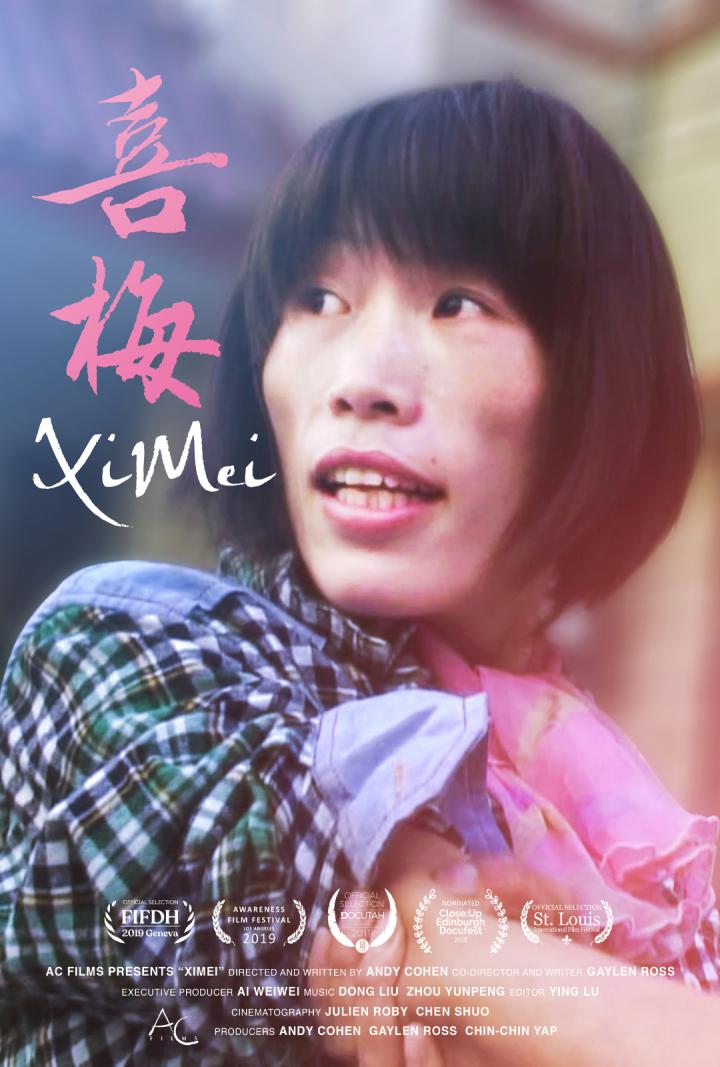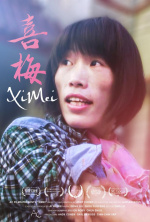Ximei
Ximei
Ximei is the story of Liu Ximei, a young woman in rural China who contracted AIDS during the years of the government sponsored “Black Blood Economy” – when in the late 1990’s impoverished peasants of Henan Province donated their blood to augment their bare living existence. Unsanitary conditions and lack of screening for disease caused blood infected by the HIV virus to be transmitted to donors and then to the recipients of blood transfusions. It is estimated that in Henan 300,000 people became infected by HIV. In many villages, as much as ten percent of the population were infected and dubbed “AIDS villages.” Although the scandal of the illegal blood trade was exposed by a few brave doctors in China and headlined in the international media, thousands are still infected by HIV and their children continue to be victims of this tragedy. All the while, China continues to cover up the scandal and forbid the foreign press from entering these AIDS villages.
Ximei, abandoned as a baby by her impoverished parents who could no longer support another child, especially a girl, is adopted by a local farmer couple. At ten years old, while helping the family to harvest wheat, her hair is entangled in a threshing machine and her scalp was completely torn from her head. Near death she is hospitalized and given transfusions of tainted blood, and so is infected with HIV. When Ximei later develops full-blown AIDS and her adoptive parents have died, Ximei, too ill and without regular guardianship, has no options other than to live in the local hospital clinic, segregated from the general population for seven years. Her only real companions are the dogs and cats that inhabit the courtyard because they don’t discriminate against her. Gradually Ximei develops friendships with fellow AIDS patients and vows that she will dedicate herself to their welfare and support.
In rural China AIDS patients are dealt the harshest burden of the disease. Poor (without any income since they are refused work or are too ill to be employed) discriminated against by family, friends, community and authorities, they have few resources for recovery to lead normal. productive lives. Even their medication is of such substandard, outdated quality that they often succumb to the treatment’s side effects before the disease itself debilitates them. Responding to this need, Ximei opens a simple halfway house to care for fellow patients, who are ostracized not only by their home villages, but also by hospitals unequipped to deal with the state-sponsored pandemic.
Patients are forced to travel long distances to the designated HIV hospitals and clinics (the only ones which will treat them) and are too poor to pay for the most basic amenities: A meal, a toilet, a bed to sleep the night. Ximei’s house is the sanctuary where all of this plus the advice and the caring ear of Ximei, a natural born therapist, are freely administered. Ximei has been forced to move her halfway house more than four times, as angry neighbors reject the HIV patients in their vicinity. Or she has been expelled by government authorities who oppose ‘gatherings’ of these patient groups, fearing that they will be a threat, petitioning for better conditions and benefits.
With friend and fellow patient Liu Min (who lost 8 family members to AIDS), Ximei travels to those in the local village who cannot come to her – like Zhenglan thrown out of her home by her family, and living in a one room shed with her husband and 90 year old mother. Like most peasants, Zhenglan can neither read nor write, and so Ximei must help her fill out complex paperwork for medical reimbursements, which are tragically less than what patients of larger cities receive in subsidies.
Other patients that benefit from Ximei’s care are a woman who was forced to abort her 7 month child under the one-child policy and then contracted AIDS when given a blood transfusion from complications of the termination; a young man who must abandon his family’s riverboat to pursue medical treatment; and a mother who watches her own child die of the disease and then is herself spurned by her husband as the cause of the child’s death.
All the while Ximei is under the surveillance of the authorities who fiercely battle to protect themselves from the light that Ximei sheds on the abuses and grievances she uncovers through her ever growing activism.
In spite of the debilitating effects of the disease on her own precarious health, Ximei yearns for a normal life -- family, marriage, even children of her own. The film follows her struggles to achieve as much as she can, as well as to rediscover her own biological mother.
The story of Ximei is also of the next generations: children who contracted HIV through mother-to-child transmission. Ten year-old Dong Li lives on her own and cooks and cleans for herself, after most of her family was decimated by the disease and her ailing father, also infected, is in the hospital more than out. Because of Ximei’s efforts to empower Henan’s victims—through rallies confronting the authorities, outspokenness and petitioning--now those patients entering young adulthood can glimpse that with education and medicine, AIDS may no longer mean death in Henan, but a life with hope.
Ximei, abandoned as a baby by her impoverished parents who could no longer support another child, especially a girl, is adopted by a local farmer couple. At ten years old, while helping the family to harvest wheat, her hair is entangled in a threshing machine and her scalp was completely torn from her head. Near death she is hospitalized and given transfusions of tainted blood, and so is infected with HIV. When Ximei later develops full-blown AIDS and her adoptive parents have died, Ximei, too ill and without regular guardianship, has no options other than to live in the local hospital clinic, segregated from the general population for seven years. Her only real companions are the dogs and cats that inhabit the courtyard because they don’t discriminate against her. Gradually Ximei develops friendships with fellow AIDS patients and vows that she will dedicate herself to their welfare and support.
In rural China AIDS patients are dealt the harshest burden of the disease. Poor (without any income since they are refused work or are too ill to be employed) discriminated against by family, friends, community and authorities, they have few resources for recovery to lead normal. productive lives. Even their medication is of such substandard, outdated quality that they often succumb to the treatment’s side effects before the disease itself debilitates them. Responding to this need, Ximei opens a simple halfway house to care for fellow patients, who are ostracized not only by their home villages, but also by hospitals unequipped to deal with the state-sponsored pandemic.
Patients are forced to travel long distances to the designated HIV hospitals and clinics (the only ones which will treat them) and are too poor to pay for the most basic amenities: A meal, a toilet, a bed to sleep the night. Ximei’s house is the sanctuary where all of this plus the advice and the caring ear of Ximei, a natural born therapist, are freely administered. Ximei has been forced to move her halfway house more than four times, as angry neighbors reject the HIV patients in their vicinity. Or she has been expelled by government authorities who oppose ‘gatherings’ of these patient groups, fearing that they will be a threat, petitioning for better conditions and benefits.
With friend and fellow patient Liu Min (who lost 8 family members to AIDS), Ximei travels to those in the local village who cannot come to her – like Zhenglan thrown out of her home by her family, and living in a one room shed with her husband and 90 year old mother. Like most peasants, Zhenglan can neither read nor write, and so Ximei must help her fill out complex paperwork for medical reimbursements, which are tragically less than what patients of larger cities receive in subsidies.
Other patients that benefit from Ximei’s care are a woman who was forced to abort her 7 month child under the one-child policy and then contracted AIDS when given a blood transfusion from complications of the termination; a young man who must abandon his family’s riverboat to pursue medical treatment; and a mother who watches her own child die of the disease and then is herself spurned by her husband as the cause of the child’s death.
All the while Ximei is under the surveillance of the authorities who fiercely battle to protect themselves from the light that Ximei sheds on the abuses and grievances she uncovers through her ever growing activism.
In spite of the debilitating effects of the disease on her own precarious health, Ximei yearns for a normal life -- family, marriage, even children of her own. The film follows her struggles to achieve as much as she can, as well as to rediscover her own biological mother.
The story of Ximei is also of the next generations: children who contracted HIV through mother-to-child transmission. Ten year-old Dong Li lives on her own and cooks and cleans for herself, after most of her family was decimated by the disease and her ailing father, also infected, is in the hospital more than out. Because of Ximei’s efforts to empower Henan’s victims—through rallies confronting the authorities, outspokenness and petitioning--now those patients entering young adulthood can glimpse that with education and medicine, AIDS may no longer mean death in Henan, but a life with hope.
Genre
Documentary,
Women and Film,
Health,
Justice,
Politics & World Affairs
Runtime
101
Language
Mandarin
Director
Andy Cohen,
Gaylen Ross
Producer
Ai Weiwei
Played at
Lumiere Music Hall 10.25.19 - 10.31.19
Ximei Get Tickets
There are currently no showtimes for this film. Please check back soon.

